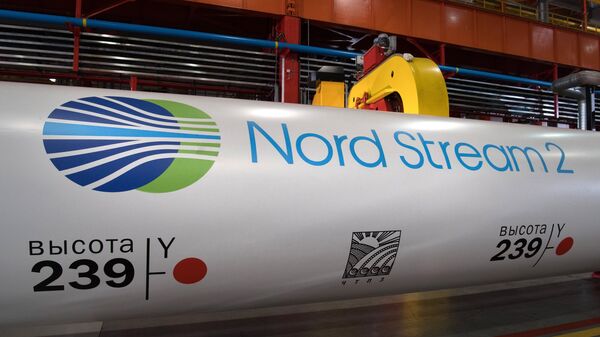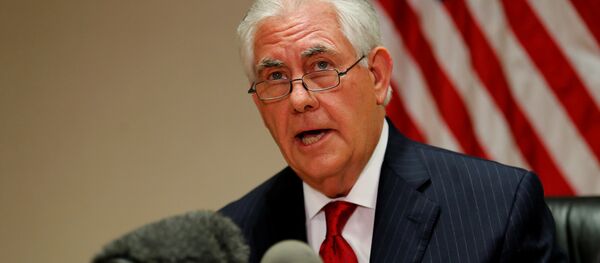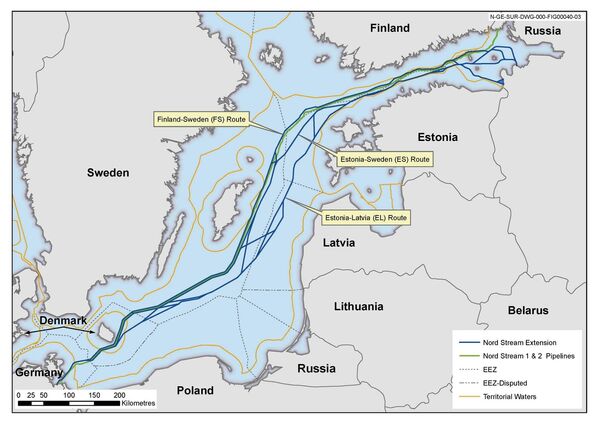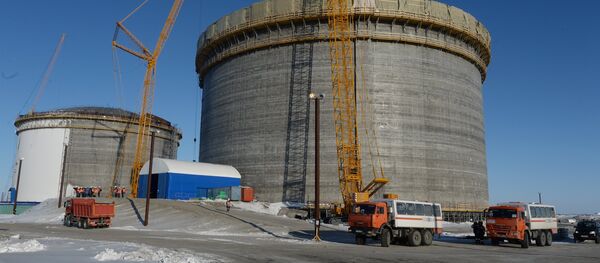Leader of Germany's Social Democratic Party (SPD) Martin Schulz has criticized the latest US sanctions against Russia and called on Angela Merkel to oppose them.
"We have seen that the US is pursuing a course in energy policy that is dangerous and is directed against Germany," Schulz told the Federal Association of German Industry (BDI).
"Our energy supply also depends on constructive cooperation with Russia," he said, and called on German Chancellor Angela Merkel to discuss the issue with President Trump at next month's G20 summit in Hamburg.
Last week, the US Senate approved a new package of anti-Russian sanctions. These were imposed in retaliation at alleged meddling in last year's US election as well as Russia's support for the Syrian government. The sanctions include a clause that aims to stop Europe's Nord Stream 2 gas pipeline project by threatening sanctions against European firms involved in the project.
The project is run by Gazprom, with its European partners Wintershall, Uniper, OMV, Shell and ENGIE. The twin 1,200 km pipeline, featuring a capacity of 55 billion cubic meters (bcm) of gas, will run underneath the Baltic Sea from the Russian town of Vyborg near the Finnish border to Lubmin, near Greifswald in Germany.
The construction runs roughly parallel to the existing Nord Stream pipeline, which began operating in 2011. In 2016, the Nord Stream Pipeline operated at 80 per cent of its annual capacity of 55 bcm, delivering 43.8 bcm of natural gas to consumers in the EU.
"I think that Europe is very interested in this commercial project. Some very big companies have signed the financing agreement, it is already in motion, the money is coming and it would be absolutely wrong to step back. Therefore, I believe that common sense will prevail; Europe really should receive this amount of gas, a stable 55 billion cubic meters per year. I think that the project will go ahead," Zubkov said, RIA Novosti reported.
Germany and Austria have reacted strongly to the sanctions, which were decided unilaterally and without any discussion with Washington's allies in Europe.
"Threatening German, Austrian and other European enterprises with penalties on the US market only because they take part in gas supply projects such as Nord Stream 2 together with Russia or finance them, is adding an absolutely new and highly negative aspect to relations between the US and Europe," they said in a joint statement released by the German Foreign Ministry.
German and Austrian businesses have also called for the loosening of anti-Russian sanctions.
On Wednesday, the president of the Austrian Federal Economic Chamber, Christoph Leitl, said that the economy should be used as a tool to help bolster cooperation between nations, not utilized as a political weapon.
"When politics is not able to find a solution, the economy is used as a weapon. But the economy should alleviate tensions instead of creating them," Leitl said at the Russian-Austrian business council as it marked its 10th anniversary.





